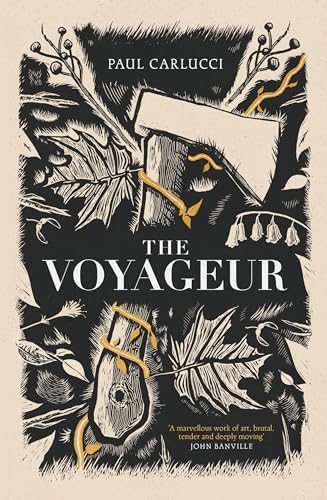The Voyageur
Lower Canada (modern Quebec), 1830. Carrying supplies to Fort William (now Thunder Bay) to trade for furs, members of the voyageur (French-Canadian fur traders) brigade are dropping like flies from consumption. Motherless stockboy Alex wants to make enough money from trading furs to buy a plot of land along the St. Lawrence for a peach orchard. Alex makes his way in a multi-cultured, uncivilised land full of bad men out for their own advantage.
When they reach Mackinac Island, they get in serious trouble. Alex’s experience is truly harrowing. He comes under the care of Dr Beaumont—it seems Alex is a medical miracle. He learns some lessons in spirituality from some Nishnaabe (Ojibwe) Indians. The miracle connects the inside of Alex’s body with the outside world in a graphic way, but the phenomenon has a spiritual side. He is nourished by the ghost of his ‘tit frère (little brother).
This novel deals insightfully with serious suffering in a harsh world. Alex’s thoughts as he confronts life-threatening situations are profound. We feel his pain, confusion, grief, loneliness. The admixture of French words and phrases is untranslated, which might be confusing to a non-francophone (but hey, there’s Google Translate), and yet it adds an exotic feel for the time and place. It both accentuates Alex’s threatened innocence and lends an immediacy, in this wild frontier, where one never really knew which people were around the corner and what unfamiliar language they might speak.
Alex is young and too frail to manage this hard life, and we follow along with his naivety, stunned by the hardships and the betrayals of false friends. I was amazed to learn that Dr. Beaumont’s experiments and this ‘medical miracle’ were historical. This is an astonishing tale of the wild frontier, sometimes shocking, sometimes deeply emotional.










